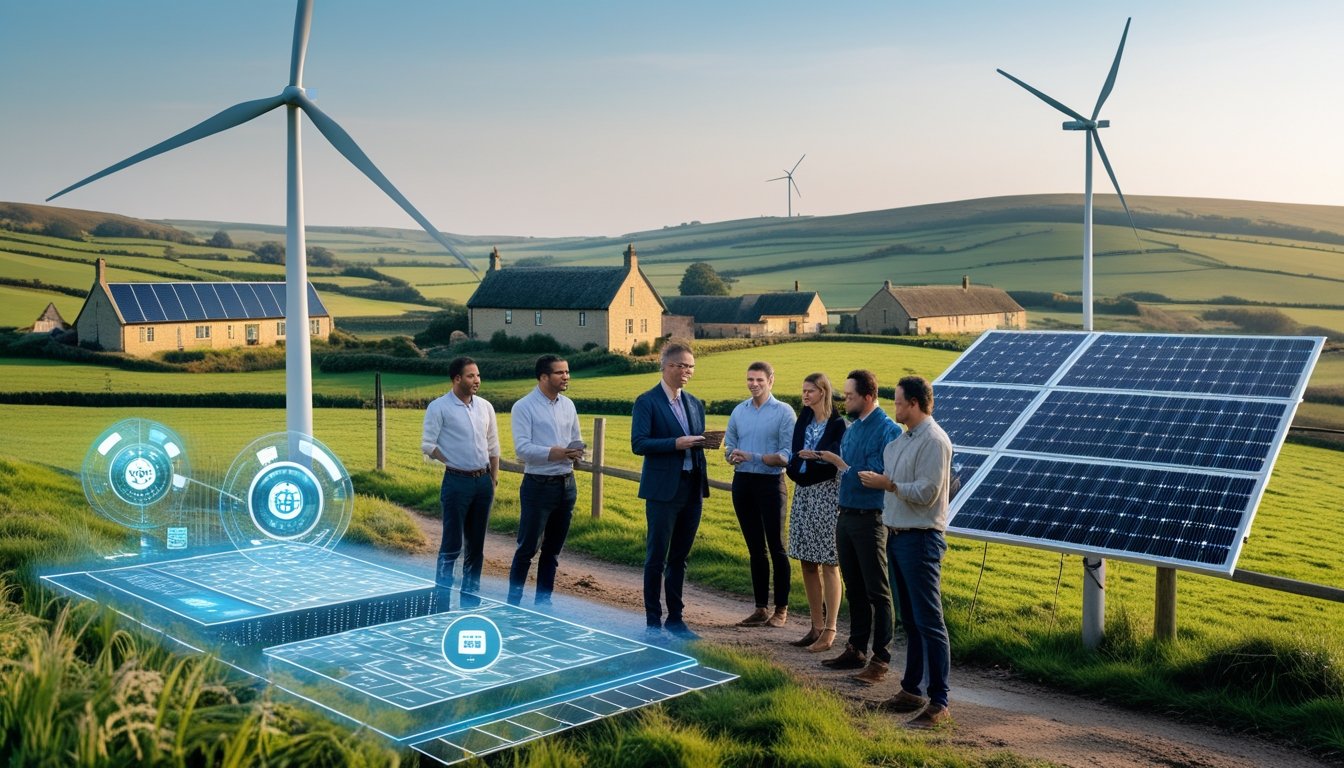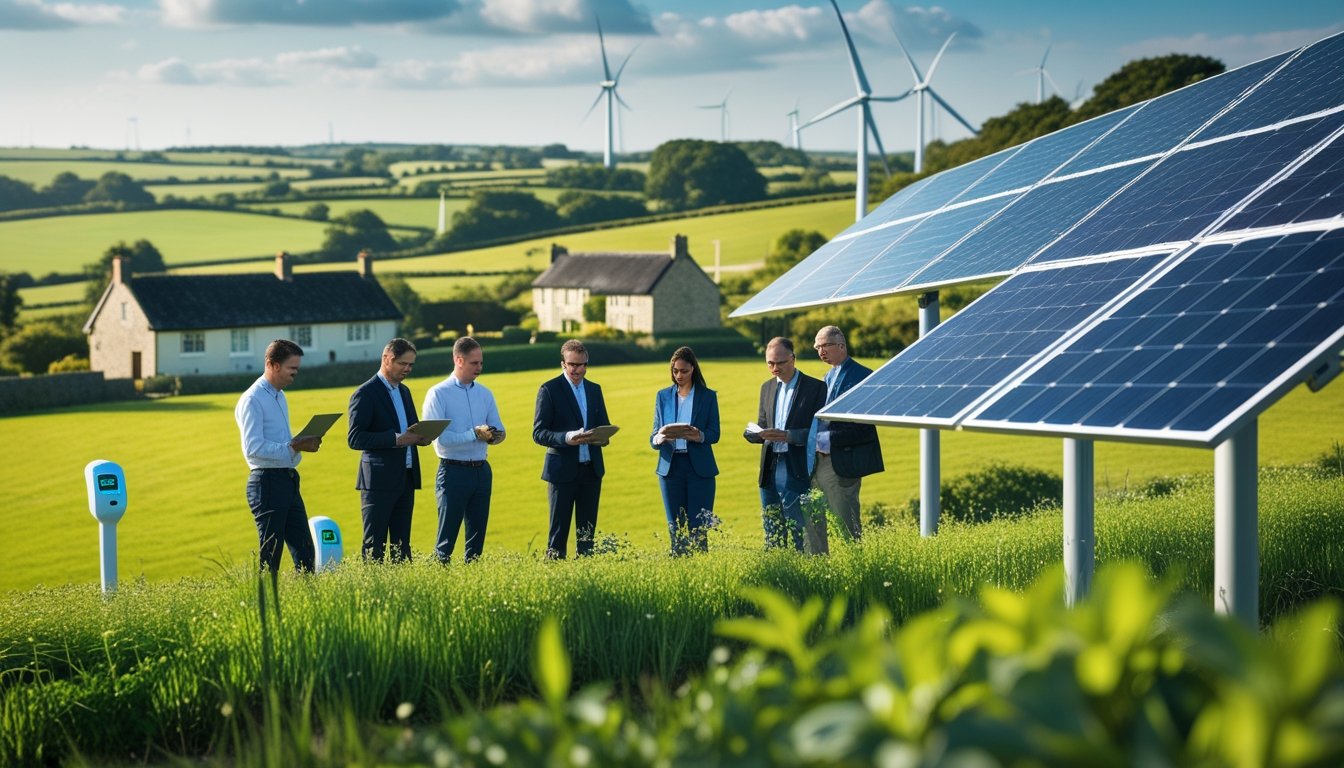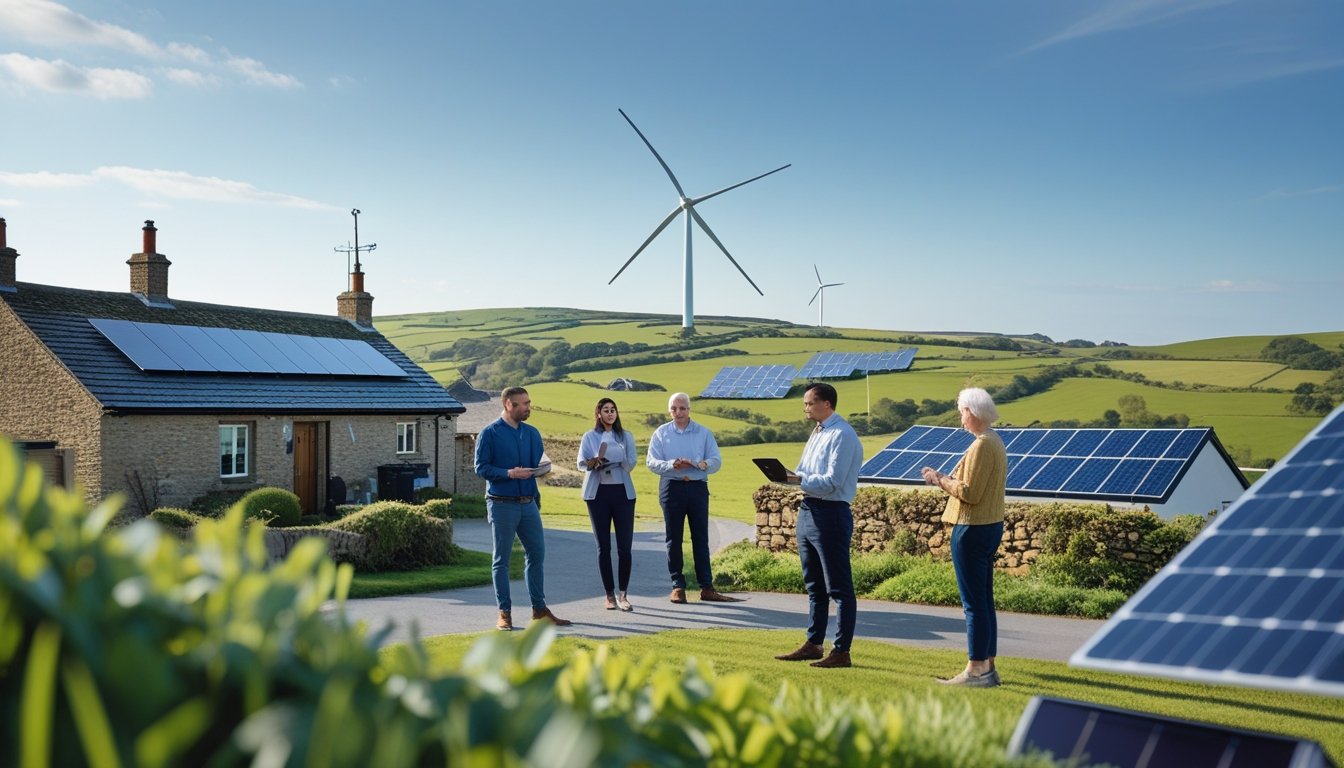Late updated: 24 Sep 2025 11:09
Written by: Oliver Bennett
AI Innovations Revolutionising Rural UK's Energy Efficiency: Transformative Advances in Sustainability
In the picturesque heart of rural UK, a silent revolution is unfolding. Artificial Intelligence (AI) is not just a futuristic concept but a vital tool actively reshaping energy efficiency in these landscapes. By integrating AI with local energy systems, we are witnessing a transformation that promises to enhance sustainability while significantly reducing costs for rural communities.

Our goal is to achieve the ambitious net zero targets by 2050, and AI innovations are a key component in reaching this milestone. Driven by advanced machine learning algorithms and data analysis, AI enhances resource management and optimises energy consumption, ensuring a sustainable yet powerful energy solution for rural areas.
Government-backed initiatives are promoting these AI advancements, enhancing the UK's role as a clean energy leader. Such programmes are crucial, providing the foundation upon which these transformative AI solutions can thrive, ultimately leading us towards a more sustainable energy future.
Key Takeaways
- AI is transforming energy efficiency in rural UK.
- Innovations help reach net zero targets and reduce costs.
- Government initiatives support AI-driven energy transitions.
AI Innovations Reshaping Rural UK's Energy Efficiency
Rural areas in the UK are witnessing a significant transformation in energy efficiency through AI innovations, leading to optimised energy consumption, smarter grid management, and predictive maintenance. These advancements are playing a crucial role in reducing carbon emissions and cutting energy costs, contributing to sustainability and the nation's net zero goals.
AI-Driven Energy Optimisation in Rural Communities
In rural communities, AI innovations are facilitating energy optimisation by analysing consumption patterns. Using AI technologies, we can identify peak usage times and introduce changes to energy usage. These systems assist consumers in making real-time adjustments to optimise their energy use, thus lowering costs and improving efficiency.
Renewable energy sources such as solar panels and wind farms are being integrated into rural areas more effectively with the help of AI. By forecasting weather conditions accurately, AI can maximise the output and storage from these renewable sources. This enables a steady supply of clean energy, reducing the reliance on traditional energy sources and contributing to a sustainable energy future.
Intelligent Grid Management and Smart Infrastructure
AI's role in grid management cannot be understated. It equips the infrastructure with capabilities for real-time monitoring and optimisation, allowing rural areas to benefit from efficient energy distribution. Smart grids, enhanced with AI solutions, facilitate seamless integration of renewable energy as well as demand management, preventing wastage.
Data-driven insights from AI help in predicting disruptions and balancing loads across the network. These capabilities ensure that the energy supply remains stable while supporting the region's clean energy transition. Smart infrastructure further aids in minimising energy losses, which directly impacts both energy savings and carbon emissions reduction targets.
Predictive Maintenance for Rural Energy Systems
AI's contribution extends to the maintenance of energy systems, ensuring their operational efficiency. By using predictive analytics, AI can foresee potential failures in energy systems before they occur. This proactive approach minimises downtime and enhances system reliability.
We are also implementing AI-driven diagnostic tools that allow for timely repairs and cost-effective maintenance strategies. This ensures that rural energy systems function optimally and aligns maintenance schedules with actual wear and tear rather than arbitrary timelines, reducing unnecessary expenditures. The result is a robust and resilient energy system that supports the UK's clean energy objectives.
Strategic Programmes and Policies Powering the AI-Driven Energy Transition

In our exploration of the current landscape, it's paramount to highlight how the UK is spearheading initiatives paving the way for a strategic shift towards AI-enhanced energy efficiency, especially in rural areas. These efforts focus on structured programmes and encouraging policies that foster innovation and economic growth.
Manchester Prize and the £1m Grand Prize Initiatives
The Manchester Prize stands as a beacon in promoting AI innovations that cater specifically to energy efficiency. This initiative, supported by the UK government, aims to incentivise breakthroughs in technology that directly impact rural energy scenarios.
By earmarking a substantial £1m Grand Prize, the programme encourages entrepreneurs and researchers to explore cutting-edge AI applications that drive significant energy transformations. This grand initiative not only attracts global attention but also strengthens the local economy. This facilitates the development of AI solutions, promising lasting impacts on renewable energy and efficiency.
Role of UK Government and Challenge Works
Our government plays a pivotal role in creating a conducive environment for AI-driven energy innovations. Through strategic initiatives like Challenge Works, collaboration between public services and private sectors is enhanced.
Challenge Works fosters partnerships that lead to scalable solutions aiming at energy security and efficiency. The initiative actively involves policymakers, technologists, and academics to address real-world energy challenges. Through this programme, we see a concerted effort towards making the UK a clean energy superpower, embracing AI's potential while bolstering economic growth. By investing in these partnerships, the government is ensuring a sustainable energy future.
AI Opportunities Action Plan and AI Growth Zones
The AI Opportunities Action Plan is crucial in outlining a comprehensive strategy for integrating AI in the energy sector. It focuses on harnessing AI efficiency to unlock clean energy prospects. Our approach includes fostering AI Growth Zones, which serve as incubators for innovative developments specifically targeting rural UK.
These zones, backed by significant government funding, provide resources to ensure that the energy transition aligns with national economic objectives. By prioritising AI developments and supporting organisations such as ARM, these zones aim to create substantial advancements not only in technology but also in inclusive economic growth. This strategic focus supports Peter Kyle's vision of enhancing renewables through intelligent AI integration.
Frequently Asked Questions

Artificial Intelligence (AI) is playing a transformative role in enhancing energy efficiency in rural areas across the UK. From advanced machine learning applications to smart grids, AI's impact is broad and multifaceted.
What are the leading AI technologies currently improving energy efficiency in rural UK?
AI technologies like predictive analytics and Internet of Things (IoT) devices are pivotal. They provide real-time insights into energy usage, leading to more efficient energy management. These innovations not only monitor consumption but also anticipate energy needs, optimising resource distribution.
How is machine learning being utilised to optimise energy consumption in British countryside homes?
Machine learning algorithms analyse historical energy usage data to predict future consumption patterns. This allows for personalised energy-saving recommendations for households. By understanding these patterns, machines can automatically adjust heating or cooling to fit resident habits, reducing waste.
What funding opportunities are available for integrating AI into rural UK energy systems?
The UK government has initiated several funding programmes aimed at integrating AI into rural energy systems. Grants and competitions, such as those offering £100,000 to support AI innovators, aim to fuel advancements and encourage the adoption of intelligent energy solutions.
In what ways are AI-driven smart grids contributing to energy efficiency in the rural UK?
Smart grids powered by AI enhance energy efficiency by dynamically managing electricity supply. They respond to real-time changes in energy demand, which helps in balancing the load and minimizing energy loss. This adaptability ensures a more stable energy distribution network in rural areas.
How are rural UK businesses benefiting from AI innovations in energy management?
Rural businesses are leveraging AI to monitor and optimise their energy usage, lowering operational costs. This leads to significant savings, enabling them to allocate resources more effectively. AI also helps businesses stay compliant with sustainability standards, enhancing their appeal to eco-conscious consumers.
What are the challenges and solutions in adopting AI for enhancing energy efficiency in less urbanised UK areas?
Implementing AI in rural areas faces challenges such as limited digital infrastructure and resistance to new technologies. Overcoming these barriers involves investing in connectivity improvements and providing education and support to build community trust and engagement with AI initiatives.
